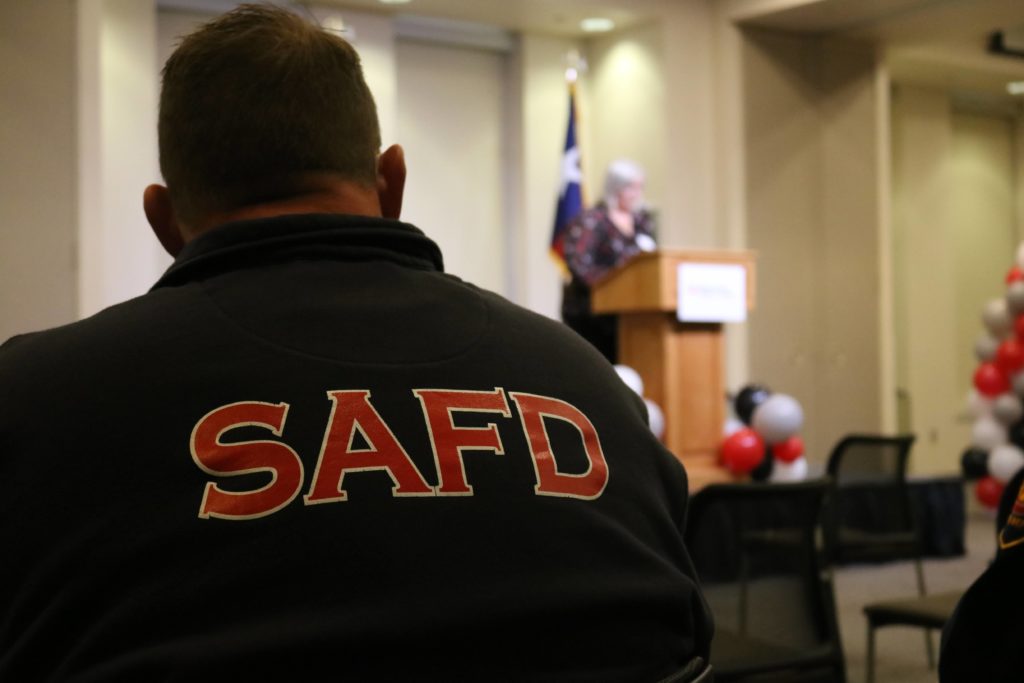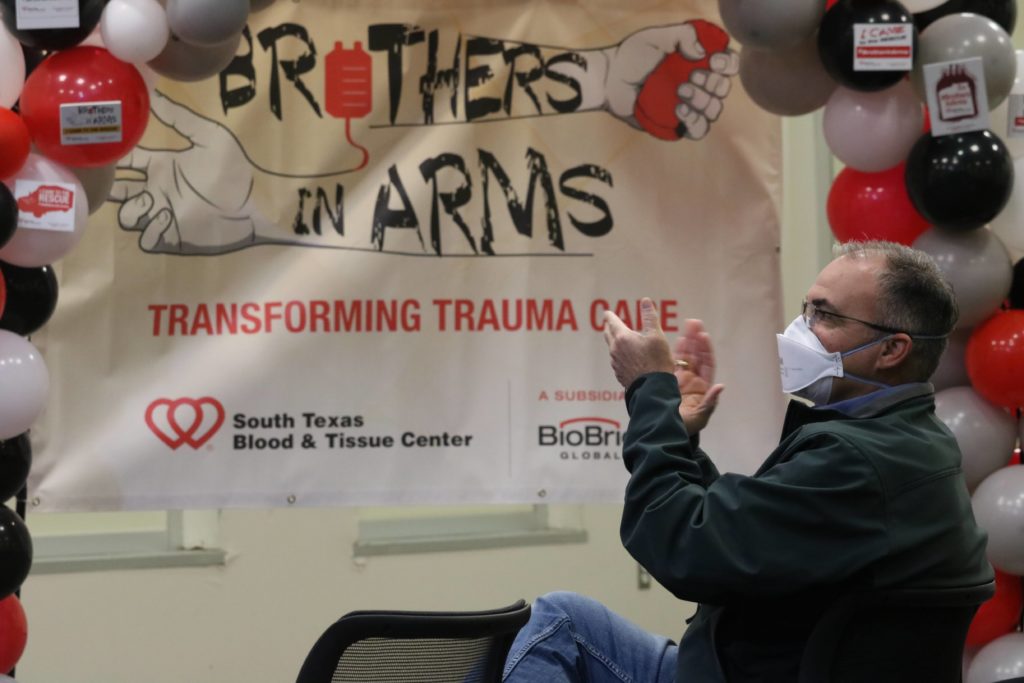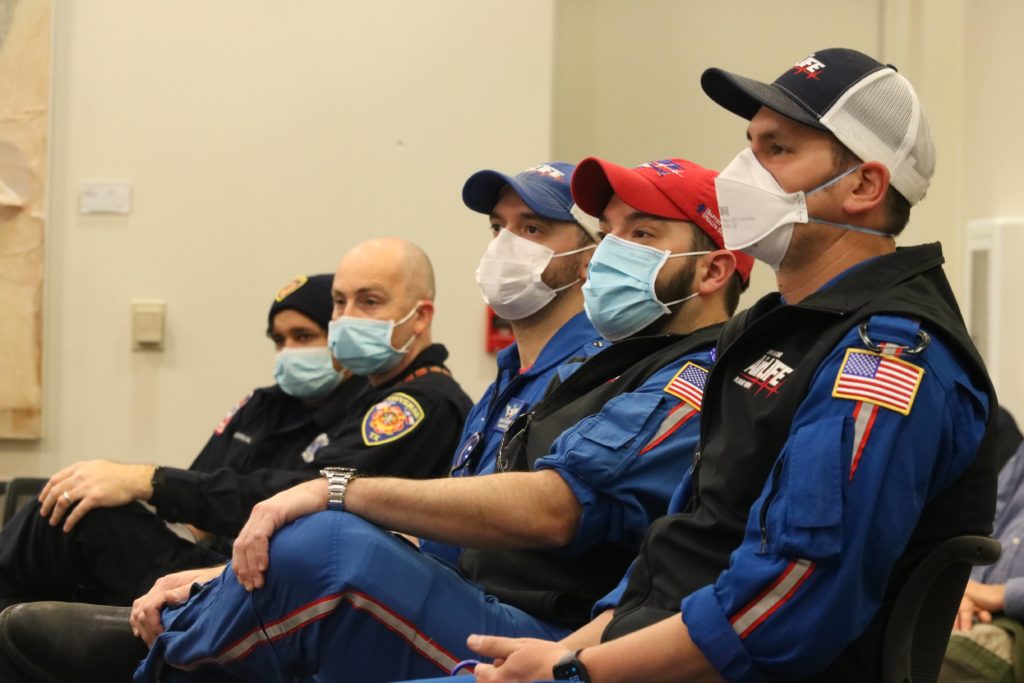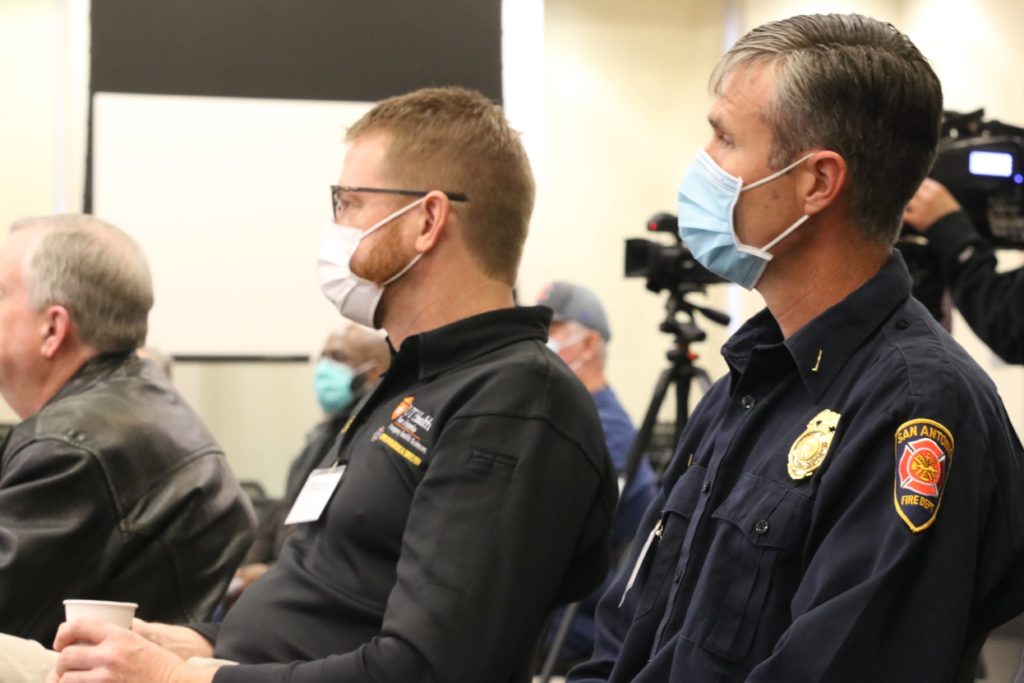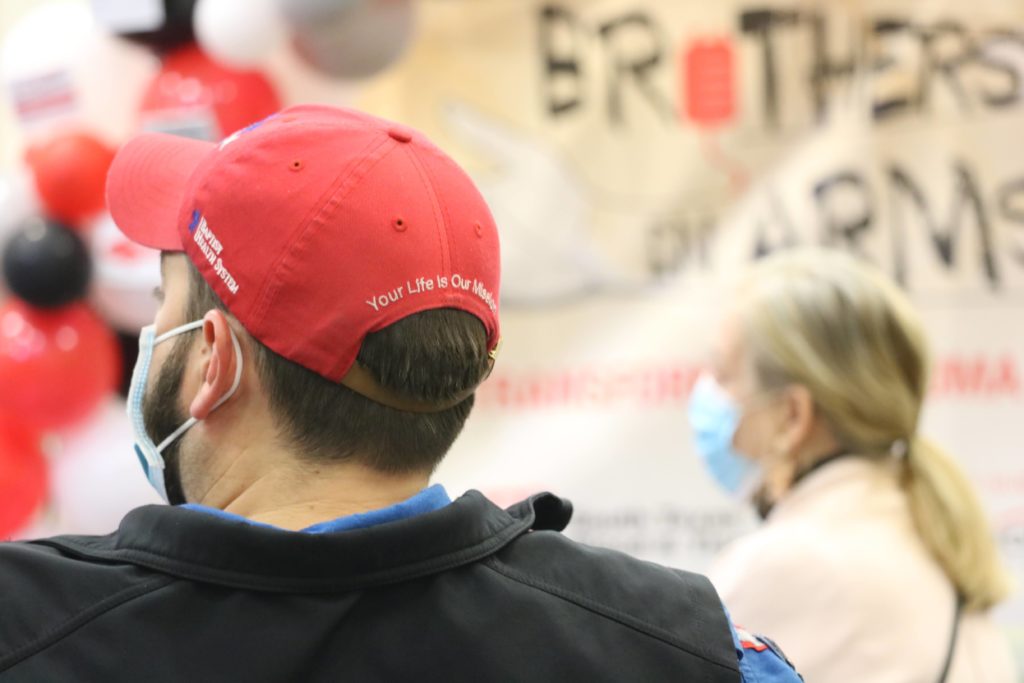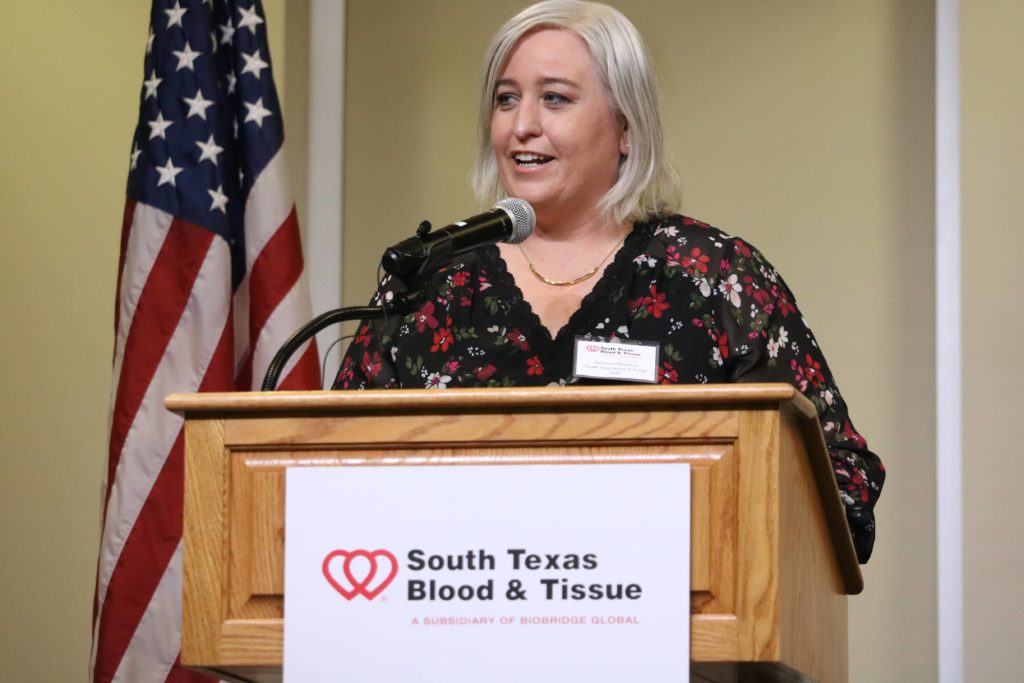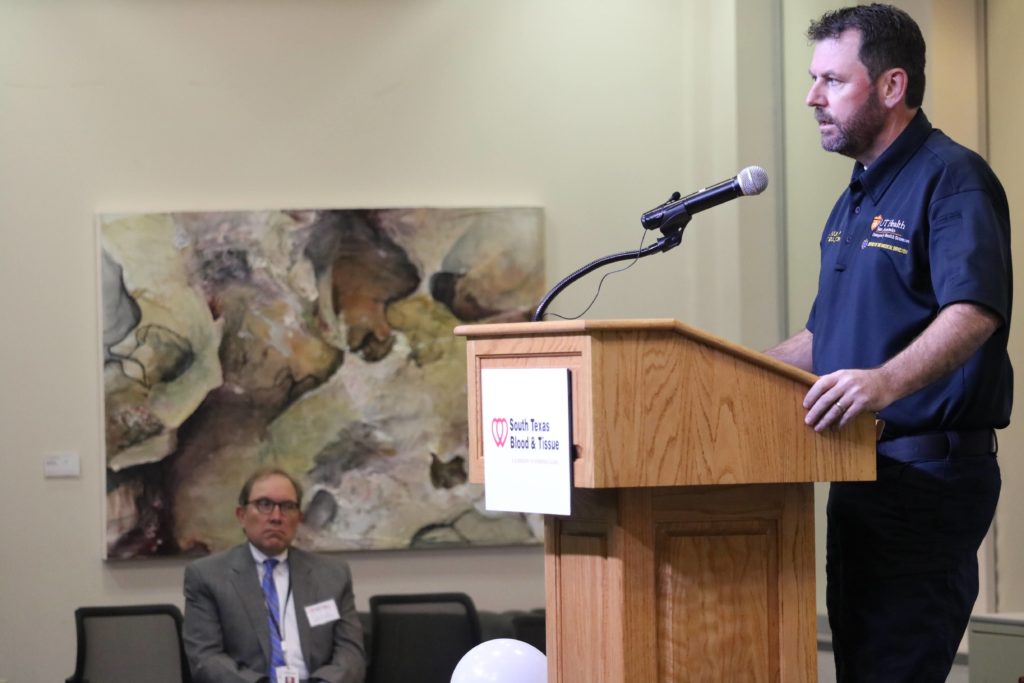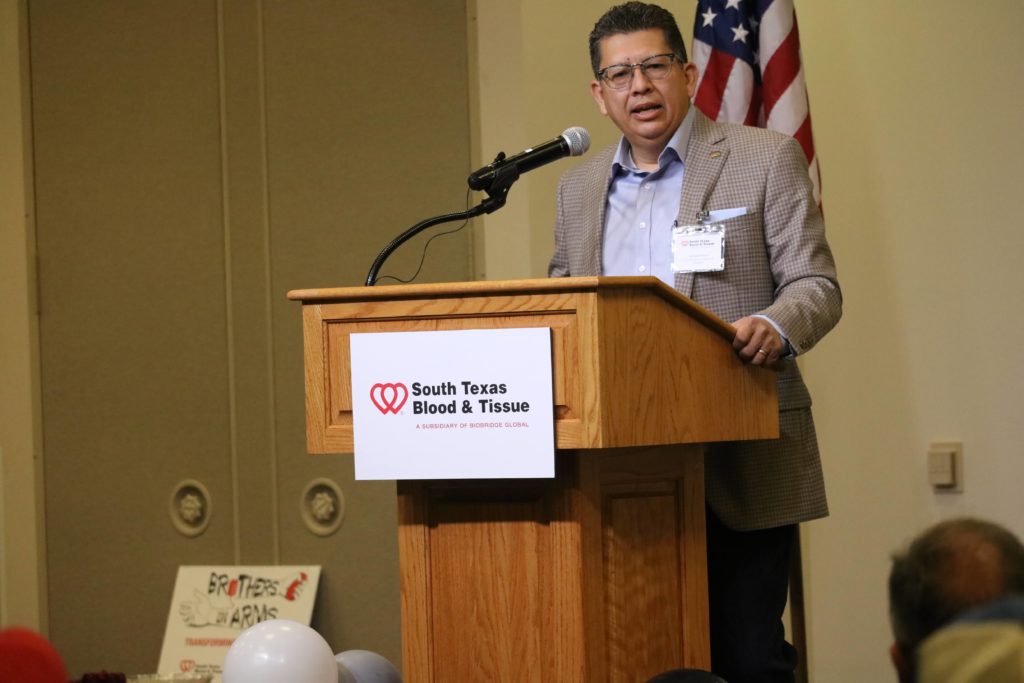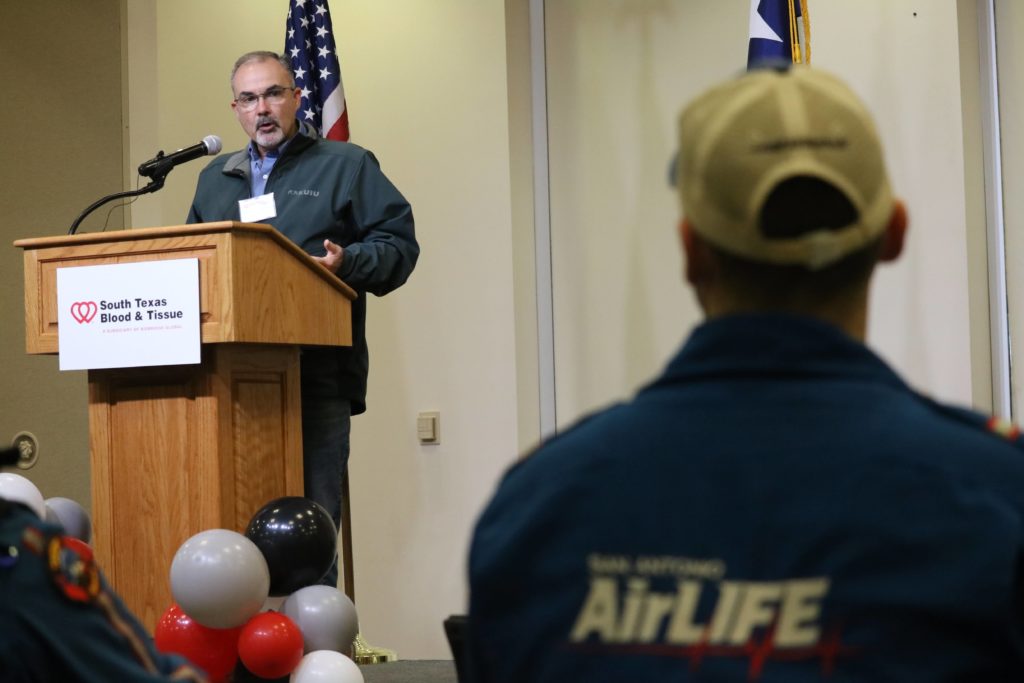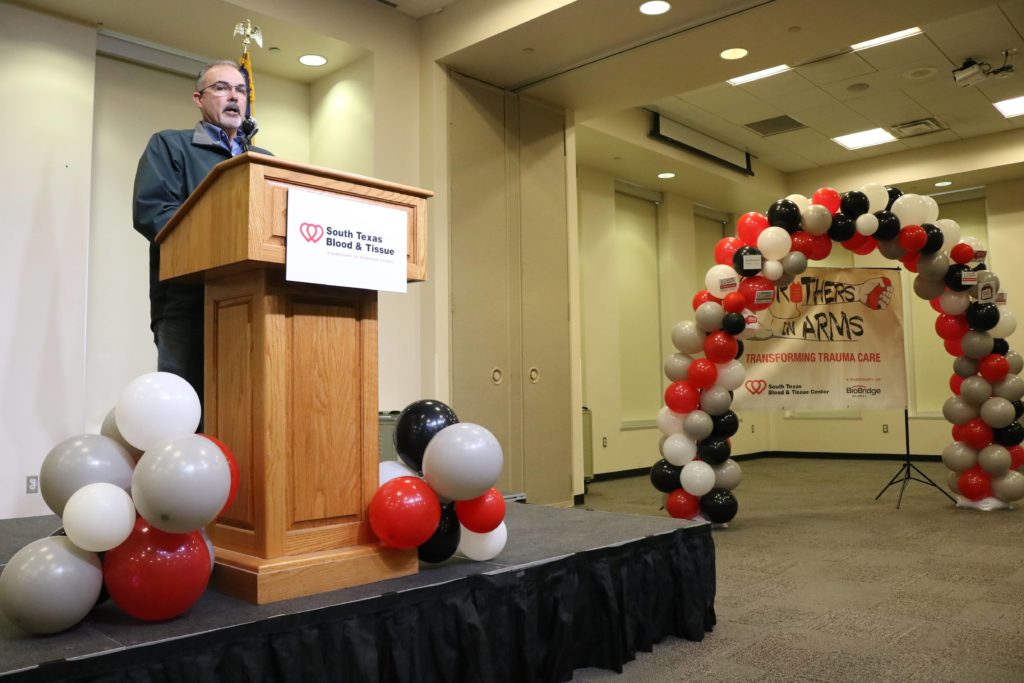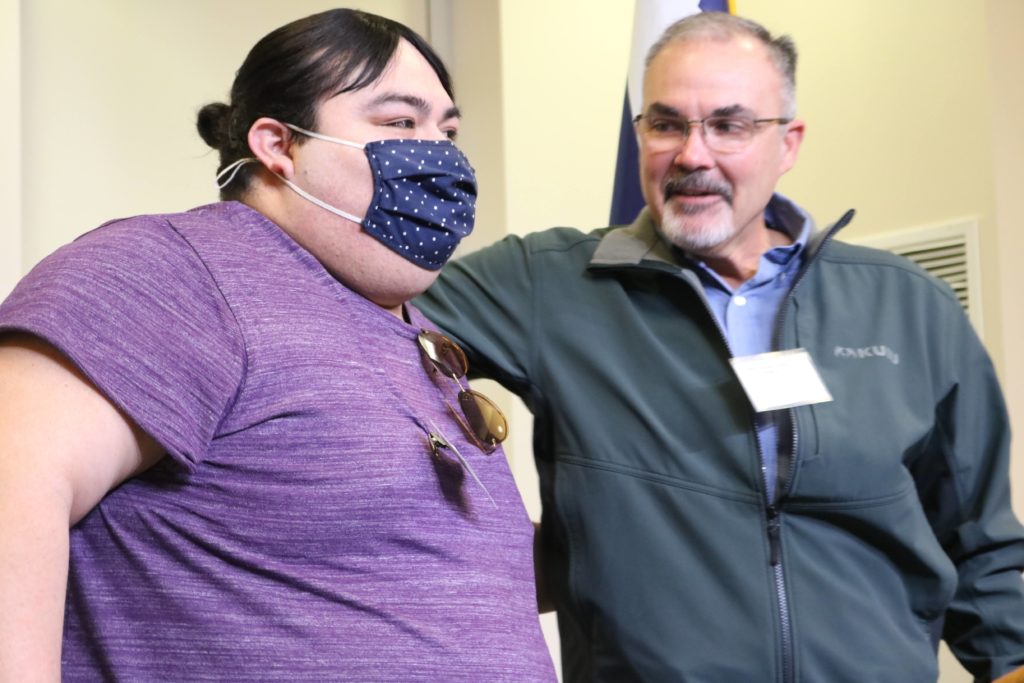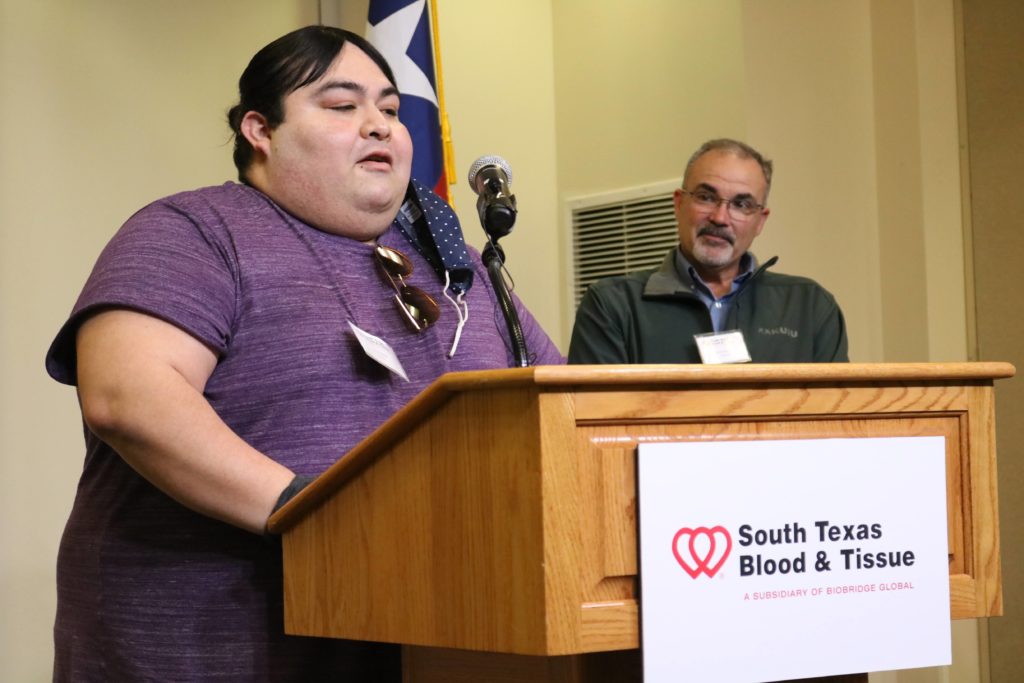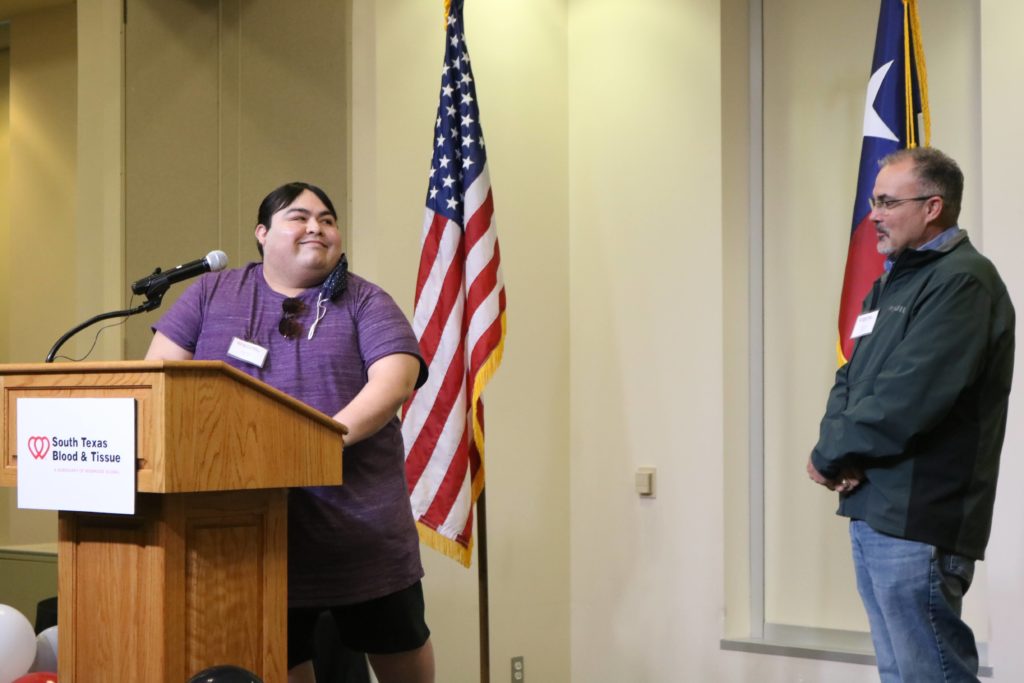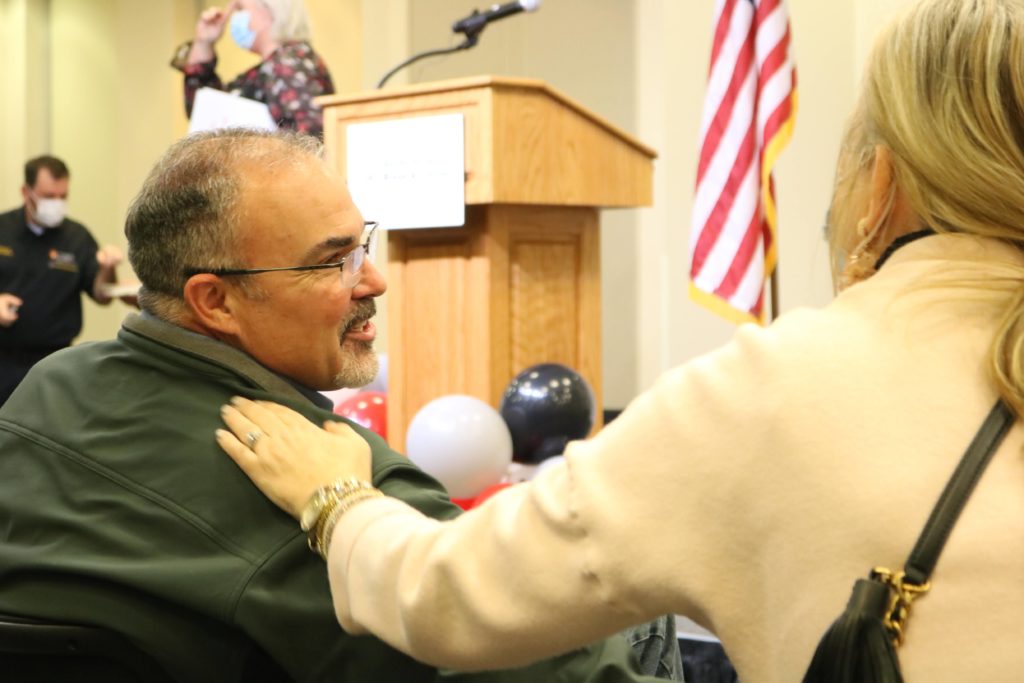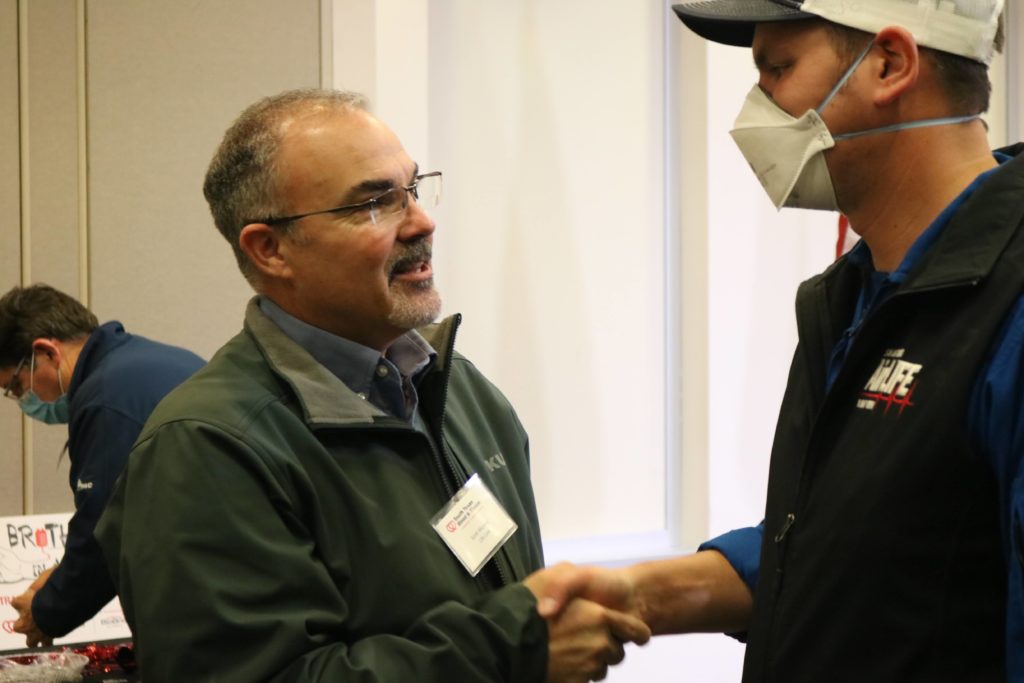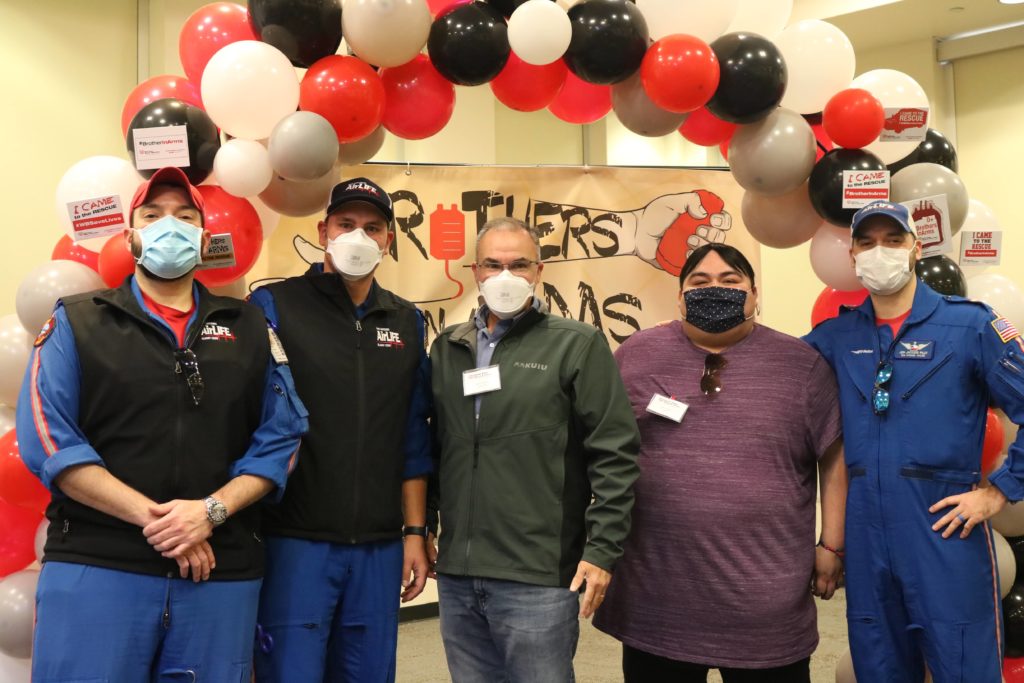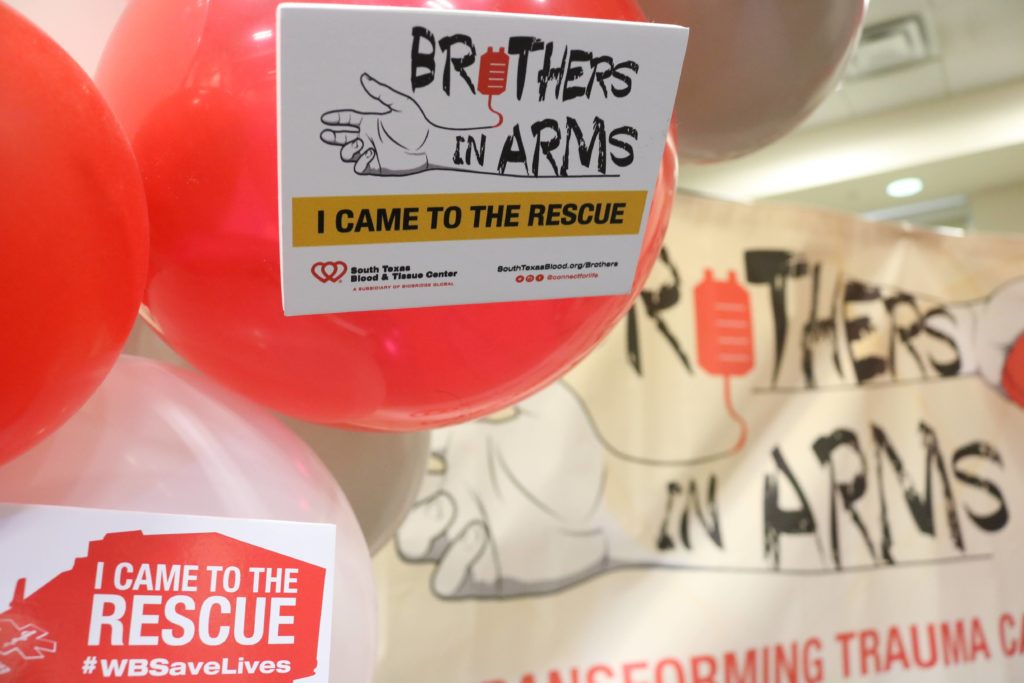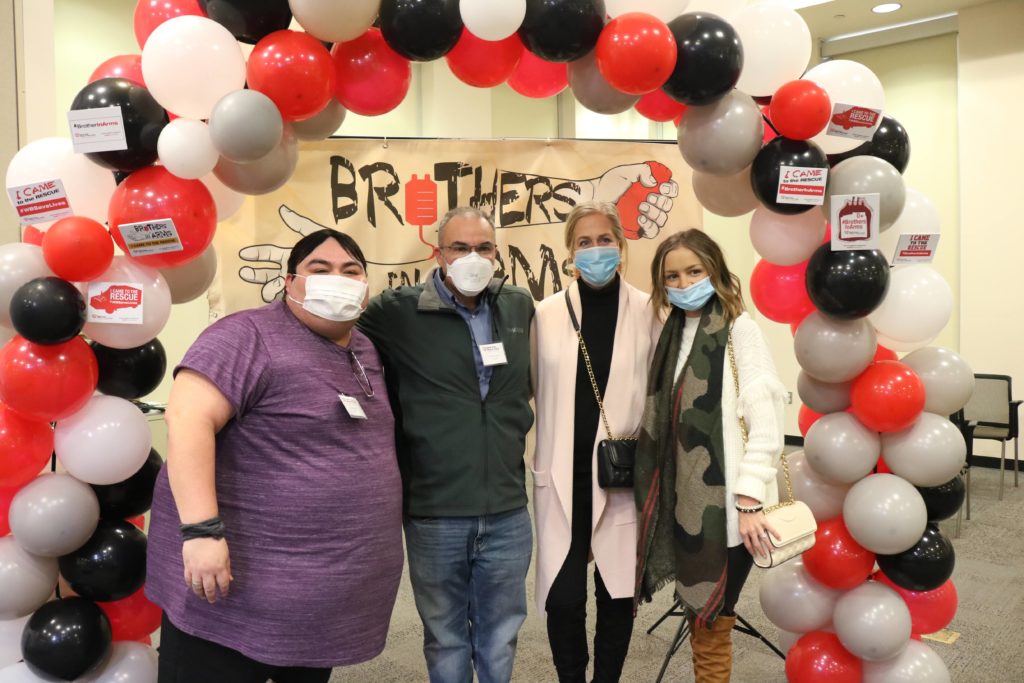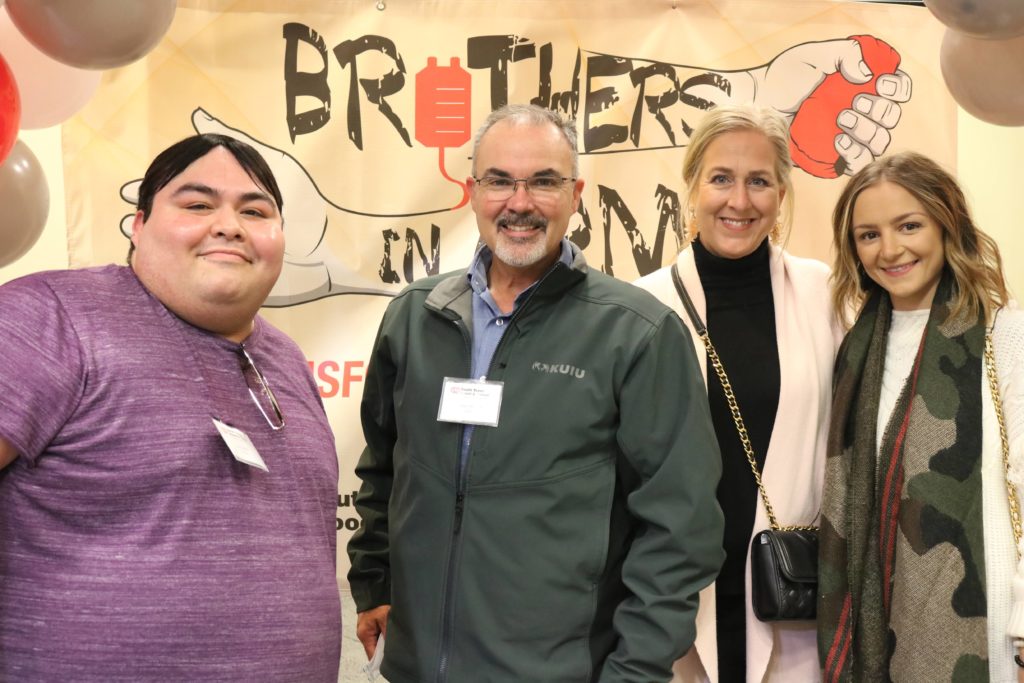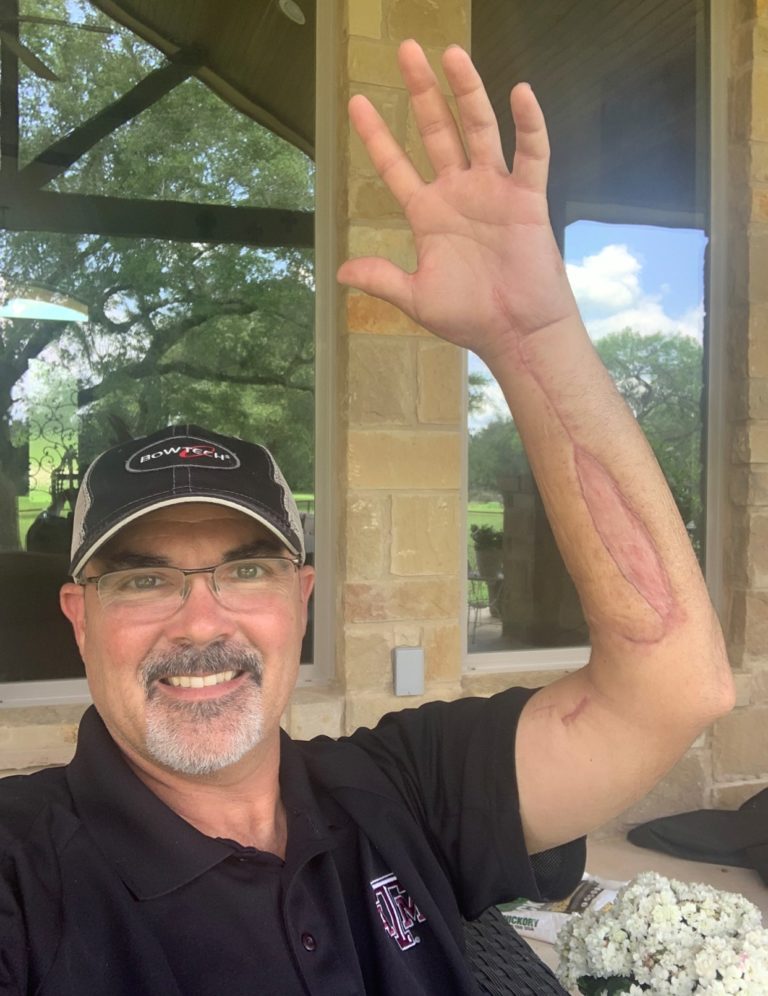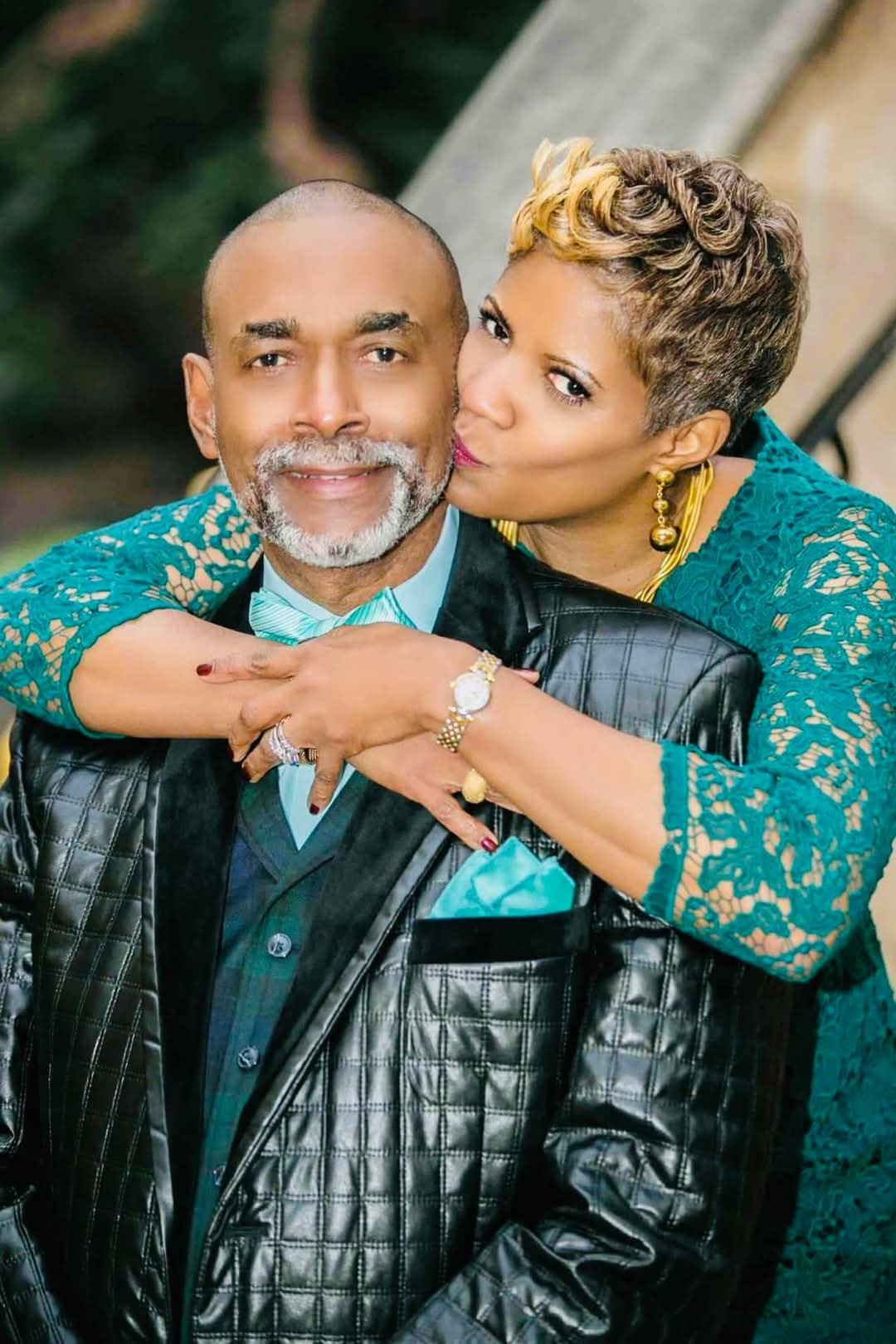Scott and his family moved to Pleasanton to be in their forever home. “We really like the aspect of knowing your neighbors and community, and I like to spend a lot of time on the tractor shredding or trimming trees, a constant summertime project,” he said.
In April 2021, Scott was working on a home improvement project after purchasing a shredder.
As he was cutting metal with a hand-held grinder, the disc exploded and shot through his arm, severing nerves, muscles, tendons and blood vessels.
“It happened very quickly. From the amount of blood, I knew it was a life-or-death situation. I didn’t know if I had five seconds or five minutes to stay conscious,” Scott said.
In shock, he had to sprint 40 yards to make it to the garage of his house. “If I didn’t make it there, in my mind, I was just going to bleed out right there,” he said.
He ran full speed, flung the door open and yelled out to his wife that he needed to go to the hospital right away – and required a tourniquet immediately.
Scotts wife saw the blood and applied pressure to the wound to help slow the bleeding. She immediately dialed 911.
The 911 operator could hear the sense of urgency in her voice. As a precaution, the operator sent both an AirLife medical helicopter and ambulance.
The ambulance was first on the scene and got to Scott in a pool of his own blood. By the time he was shuttled into the ambulance, medics estimated he already had lost half of his body’s blood.
“I was fearing for my life and scared to die to be honest with you,” Scott said.
While the EMS team checked his vitals, a sheriff’s deputy was shutting down the road so the helicopter could land.
“The AirLife crew said I was very gray and pale when they got on the scene. They immediately gave me a blood transfusion to stabilize me. They knew if I didn’t get blood my outcome was going to be different.”
Scott received two units of blood on the 15-minute helicopter flight to University Hospital, and several more units in surgery to save his arm.
“I truly believe in my mind that early blood transfusions made a difference in me being alive and here today,” Scott said. “If I didn’t receive blood that quickly, my thought is that I wouldn’t have made it, and if I did make it that I would have a lot more health complications than I do.”
From time to time, he reflects on a conversation he had with his surgeon.
“He indicated to me that he’s been doing trauma-related surgeries for 15 years and the vast majority of people that he had seen with an injury to the extent that I had would have either two likely outcomes: They would have lost their life because of the amount of blood that they had lost, or number two would have lost their arm, neither of which happened to me.”
